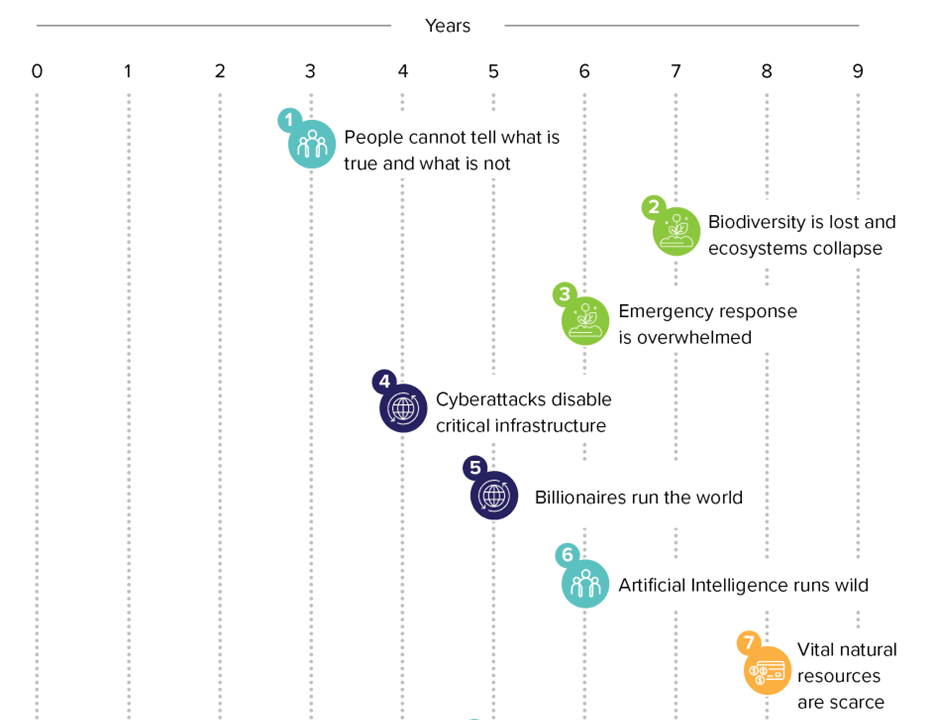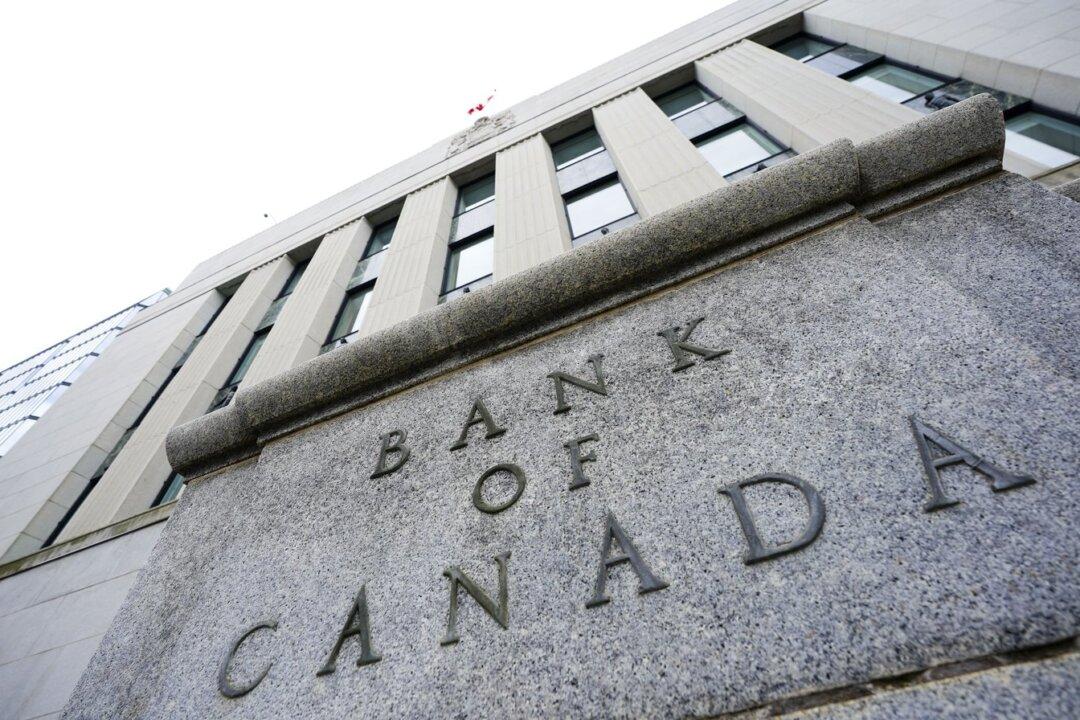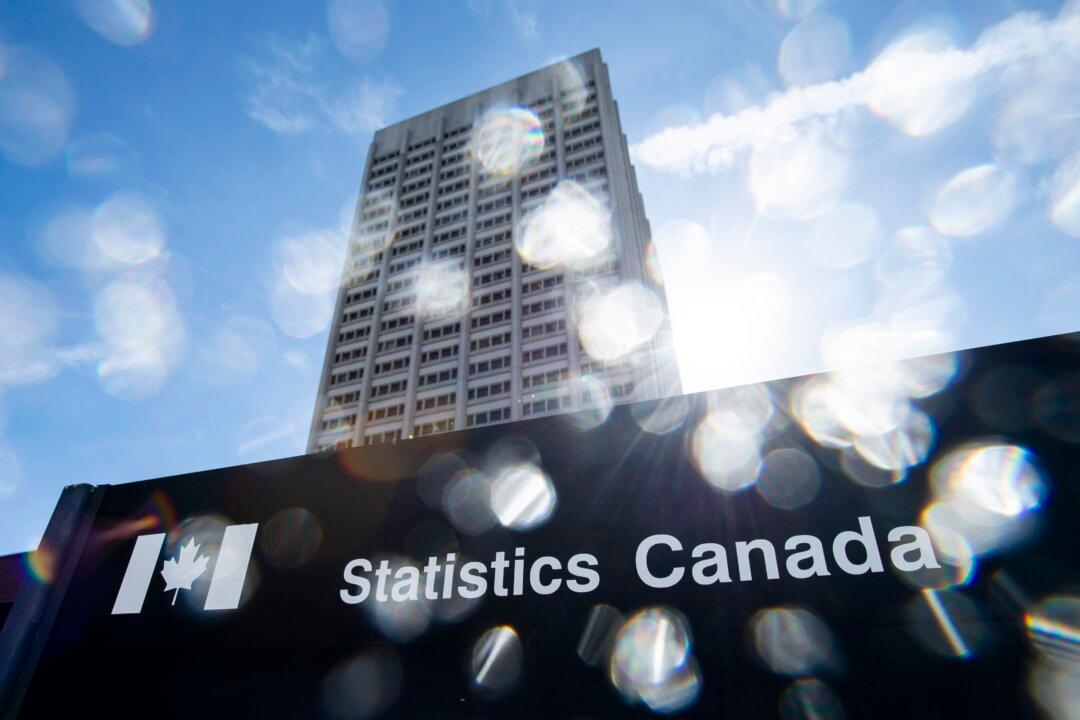Truth could become indistinguishable from lies in 2.5 years, cyberattacks could disable critical infrastructure in four years, billionaires could be running the world in 4.5 years, and vital natural resources could run short in eight years, according to a federal panel tasked with imagining 35 “plausible” catastrophes.
The list of threats was created by federal policy advisory body Policy Horizons Canada, which ranked the disasters by potential impact and timelines. Threats that made the top-10 ranking included ecosystem collapse, artificial intelligence run amok, health-care system collapse, a breakdown of democratic systems, overwhelmed emergency response, and widespread downward mobility.





